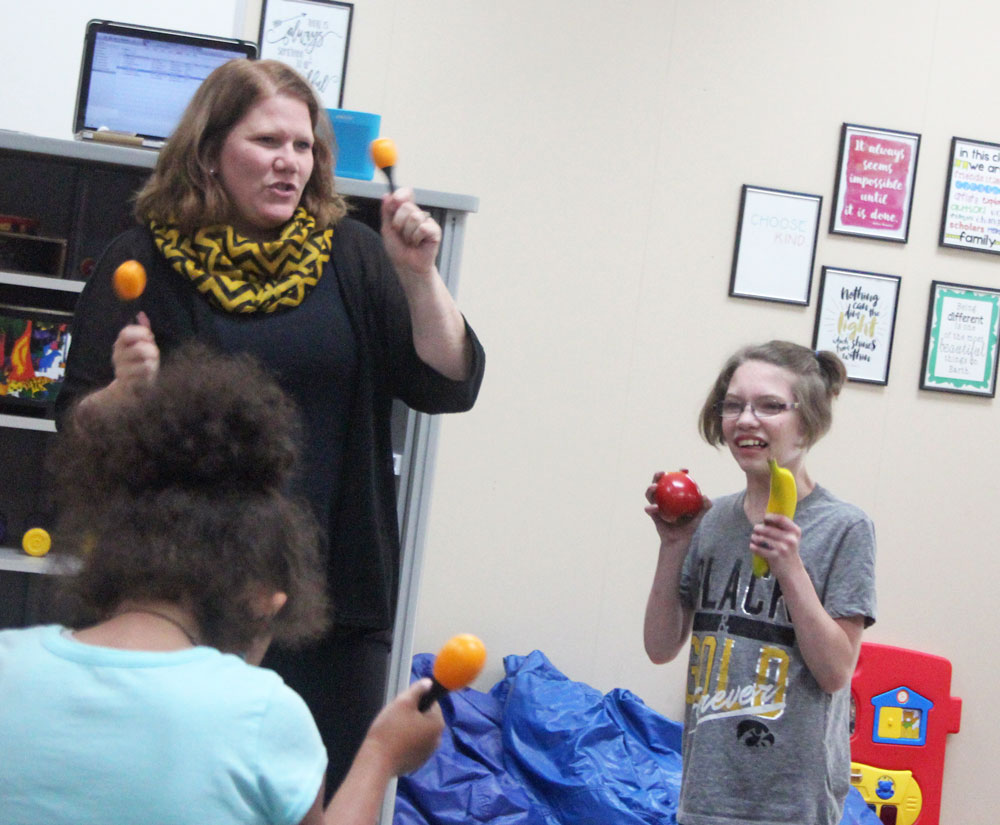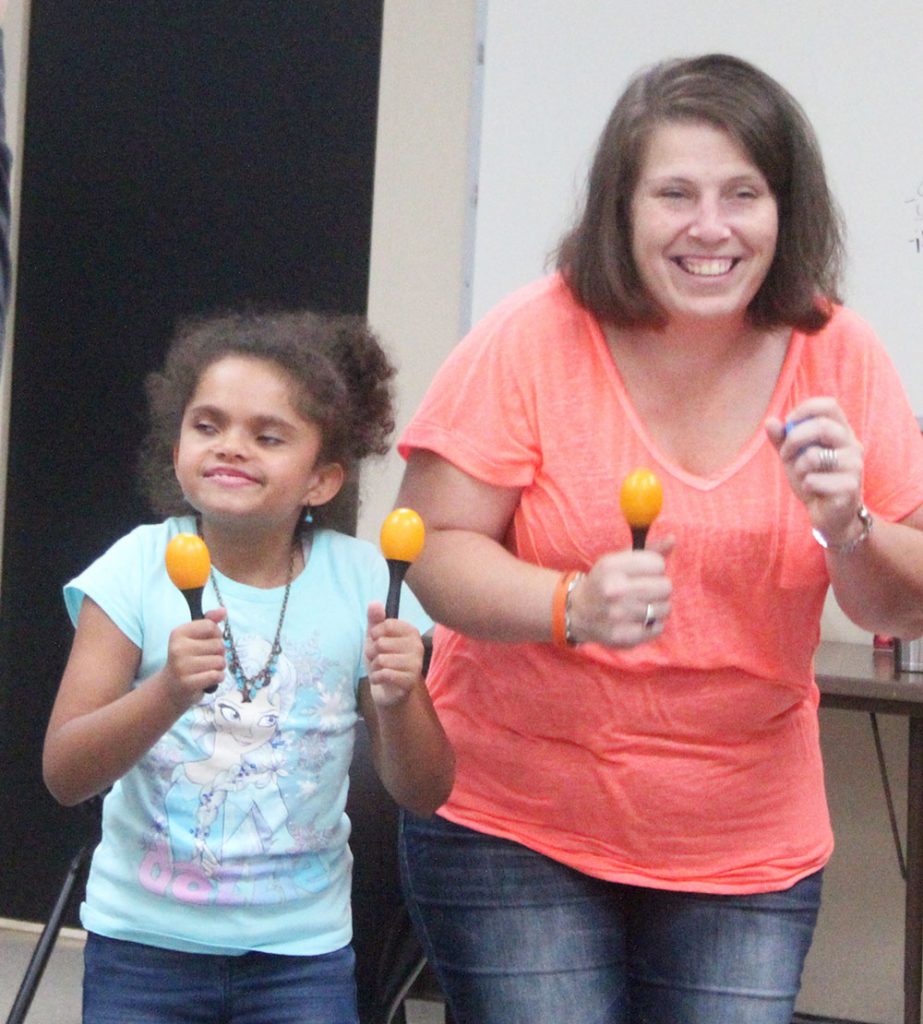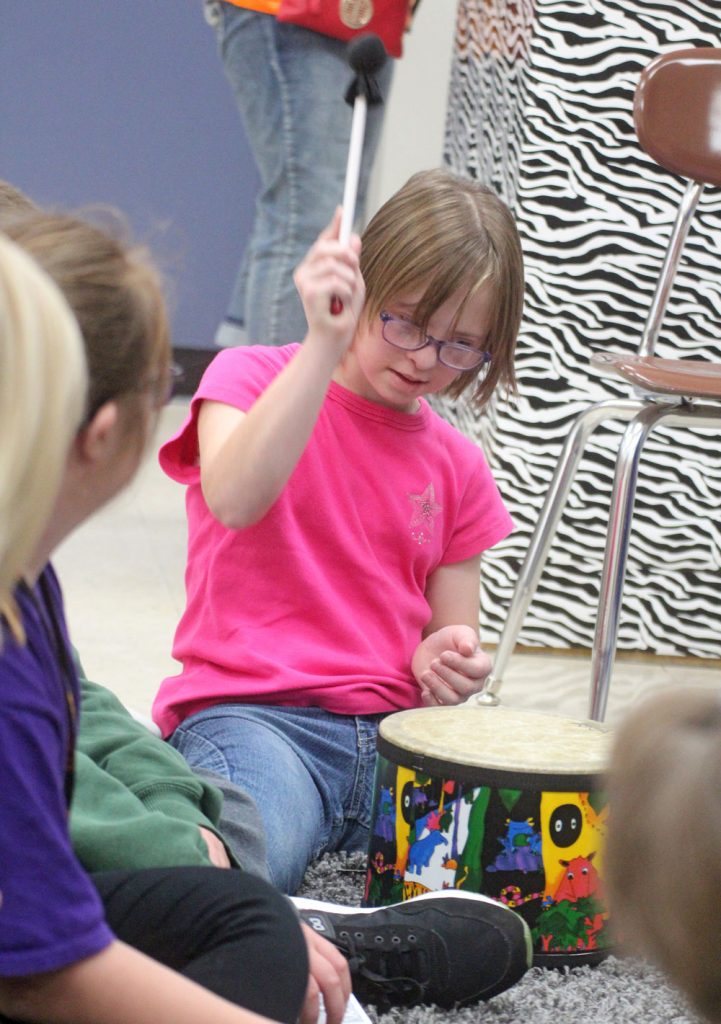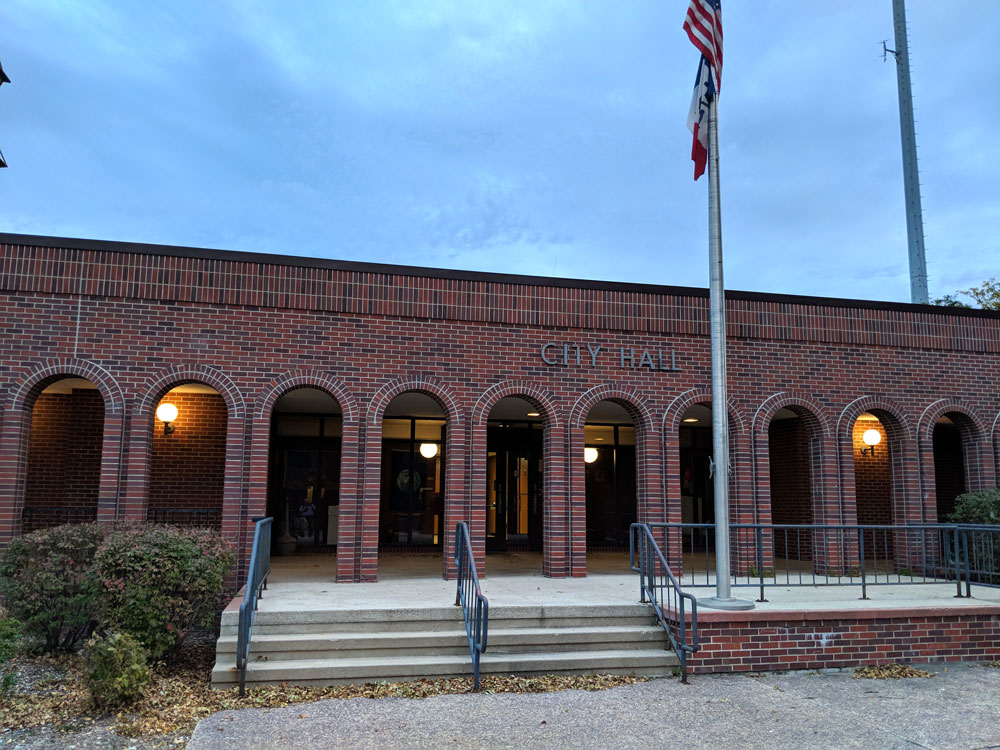Playing with sounds in adaptive music class
By Kate Hayden, khayden@charlescitypress.com
Middle school band teacher Renee Boss passed out fruit-shaped shakers and adjusted the volume on her laptop. As the peppy music started playing, her class of six students started shaking to the beat.
It was another day of joy for the new Adaptive Music class Boss leads with special education teachers.
“It can be a bit of a release for some of the kids. It can be a great way for them to express joy. We have lots of laughter and lots of happiness,” Boss said. “It’s an opportunity that a lot of special needs kids are not provided in their public school education, and we are very, very excited to offer this.”
“It’s what we like to call a game-changer.”
Boss first told instructional coach David Voves about her idea for the program last spring. They then approached special education teacher Amanda Achenbach about the concept, who jumped on board.
“They just light up with instruments in their hands,” Achenbach said about her students.
Boss applied for a grant with the Charles City Excellence in Education Foundation and was awarded $1,000 for a book on teaching special education students, and multiple instruments: boom whackers, shakers, dundun drums and more. She also purchased music from iTunes, which students play along to with Boss as they practice music skills.
“It’s used in action every day, and we’re so thankful for that,” Achenbach said.
The class isn’t a licensed music therapy program, but it does offer the benefits of music in a relaxed environment to Achenbach’s Level 3 special education class. Boss works with between four to eight fifth-eighth graders in an adaptive music session twice a week.
“I’m not trained as a music therapist at all. I have no training in that. But it is something that I do have a passion for,” Boss said. “Kids have instruments to play on that we rotate through so they get a lot of experience on different stuff, mostly rhythm instruments.”
Students who sign up for the general music education courses can still attend chorus, band or orchestra as well as taking the adaptive music class.
“It’s not replacing their music classes,” she added. “The general music class sometimes moves too quickly for them … This is a therapeutic way for them to get their hands on an instrument and express themselves while exploring the different sounds.”
At the start of the year, students explored concepts like dynamics and the characteristics of sounds. Each class begins with students pounding out the rhythm of their name’s syllables, with guidance from Boss.
“If something sounds peaceful and calm-sounding, (they learn) how you make it sound that way,” Boss said.
“It’s a sense of pride for them when they can do things like that, and when they know what ‘their’ specific rhythm is.”
Each class session ends with a few minutes for students to experiment with an instrument of their choice, on their own.
“If certain instruments appeal to certain students, we’re going to use those instruments to build a comfort level and as a reward system — if they’re following directions they get to do some of those things they choose to do,” Boss said.
Outside of the music sessions, Achenbach uses class lessons like dynamics for her students to reference.
“We talk about, ‘Remember how Mrs. Boss used loud sounds and quiet sounds’ — we do carry that throughout our day,” Achenbach said.
The rhythm instruments give Achenbach’s students satisfaction of immediate success, she said — and it gives them a reward to look forward to at the end of a day. On non-music days, the class sometimes borrows the instruments as a treat for students’ positive behavior.
“It keeps our day more positive all day long, because they just love it,” Achenbach said. “You can’t just pick up a violin and play it like that … Just the success that they are able to have, parents are very, very happy with that.”
Boss is discussing a potential partnership with the Wartburg College music therapy program for the future, she said. She’d also like to eventually have a classroom performance for parents during the school day, while the students are in their comfortable, regular environment.
“It’s a great little program we have started. It has tons of room to grow,” she said.
Boss may apply for more grants from the Excellence in Education Foundation to expand the instruments students can play with. In the meantime, she intends to continue the adaptive music course as long as possible.
“I think it’s so important for every student to be exposed to music, no matter what level,” Boss said. “Music is processed differently than regular, spoken speech. That can help unlock a lot of things for kids.”











Social Share